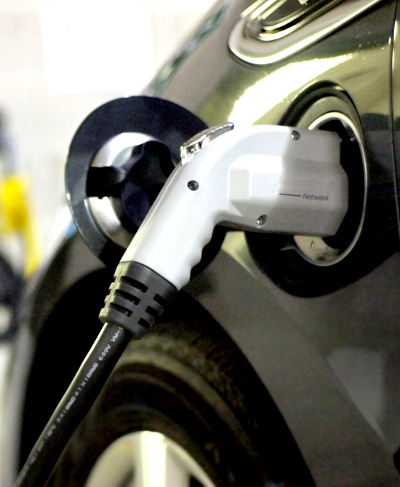EV rise reported
 New figures show Australian sales of electric cars are rising at record levels.
New figures show Australian sales of electric cars are rising at record levels.
The Electric Vehicle Council’s state of the industry report shows 8,688 battery and plug-in EVs have been sold in the first half of 2021.
The new EV sales in the first six months of this year are higher than the 6,900 sold in Australia in 2020, which was itself 2.7 per cent higher than the previous year.
Australian consumers can now access 31 different passenger electric vehicle models from 12 different manufacturers, with an additional 27 electric vehicle models entering the market by the end of next year. There are now 14 different models available for less than $65,000.
Electric Vehicle Council chief executive Behyad Jafari says public discussion about the technology has “come a long way quite quickly” since the fierce debate at the 2019 federal election, during which Prime Minister Scott Morrison announced that then Labor leader Bill Shorten “wants to end the weekend” by supporting EVs that “won't tow your trailer”.
“It's not going to tow your boat. It's not going to get you out to your favourite camping spot with your family,” Mr Morrison said of a technology that boasts greater potential torque capabilities than petrol-based vehicles.
Full manufacturing cost parity with combustion engine cars is expected to be achieved by 2025. Also by 2025, Audi is expected to have 30 electric vehicle models available in Australia, Hyundai will offer 23 models, there will be 24 options from the Renault group and 30 from GM,while Volkswagen will have 70 new electric models available by 2028.
There are now over 3,000 public chargers installed across Australia at more than 1,650 locations; a ratio of 7.2 electric vehicles for every installed public charger.
Experts have welcomed measures by state governments to encourage EV uptake, including Victoria’s target of 50 per cent new sales to be zero emission vehicles by 2030, and NSW’s electric vehicle strategy that seeks to increase sales to 53 per cent by 2030-2031.
Both these states and several others are offering financial rebates of up to $3,000 for new electric vehicle purchases while some jurisdictions are waiving stamp duty and registration fees.
Meanwhile, the Federal Government is lagging.
It has produced modelling that found subsidies for battery electric vehicles may not provide value-for-money for taxpayers, and are an expensive form of abatement.
However, Federal Energy and Emissions Reduction Minister Angus Taylor says the government is doing something.
“While industry works to make more electric vehicle models available and more affordable, the Morrison government is getting on with the important work of delivering the infrastructure that’s needed to support Australians who want to buy and drive an EV,” he said.







 Print
Print